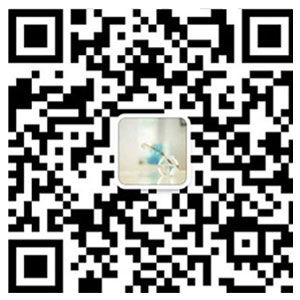教育者先行 | 我们究竟需要什么样的创新课堂?
生物、物理等学科和数字技术的融合,
悄悄改变着我们今天所知的世界,
前沿科学技术工具的熟练运用,
正在颠覆着我们曾习以为常的课堂。
在爱迪,有这样一批教育工作者,
带领学生奔涌入第四次工业革命的浪潮,
砥砺挖掘出一条连接科技与教学的通道。
关于科技是否对教育产生颠覆影响的争论从未休止,但科技的进步确实正在给爱迪课堂带来改革与创新。事实上,教育不仅是一门科学,更是一门艺术,科学与艺术相结合的教学方式才是创新课堂背后的核心驱动力。来自爱迪小学部的英文老师 Tim William 正在借由AR(Augmented Reality)技术,迈出科技教学创新的一大步。
“触摸”太阳系,原来如此容易
针对一节关于太阳系行星知识的英语课程,Tim 老师早在课程设计阶段,就与爱迪创新实验室协调员 Ken Dong 共同探讨如何正确使用AR设备,并计划利用AR设备来帮助学生在获取英语知识的同时,得到社会情感学习的教育体验。
课程按计划如期开展,学生们首先观看了地球的四季影像,了解太阳系对地球天气的影响,这不仅关联了学生之前学习到的行星知识,相关的英文知识也被无缝嵌入其中;接下来,Tim 老师通过展示行星的相对大小和距离,鼓励学生使用比较级和最高级的英语表达方式向同伴阐述观点。
在随后的数据获取练习中,学生以研究者的身份搜索新鲜有趣的事实,并担任“小讲师”,自然串联起 orbit、sols、rotation 等词汇,并将自己的收获向全班展示。
我们要做的,绝不仅仅是获取知识本身
Tim 老师认为,熟练有效地利用AR作为获取知识的途径并不是最重要的,重要的是拥有可以终生受益的技能,和一份持续进步的态度。
爱迪教与学创新中心总监 Russell Hazard 也指出,“技术仅仅是一种工具,现代教师必须成为熟练有效运用此工具的专家,但从社会情感学习被爱迪学校确定为重要教学目标起,科技教学就不仅是为了知识的获取,而是更强调人与人的互动以及项目管理能力,我们的教师正在为学生提供一个沉浸式的环境,以及多维度的学习体验,来确保这一目标的实现。”
提高社会情感能力,科技需为人所用
Tim 老师正持续努力地将AR等新科技整合入他的课程中,但与此同时,他也清醒地认识到,仅教会学生使用AR科技或其他学习工具是远远不够的。结合交互式学习和小组活动来激励学生的自我认知与自我评估,从而提高社会情感能力,这一点与把科技元素融入课堂是同等重要的。
无论是利用高科技的教学资源,亦或提供社会实践机会,爱迪都在帮助孩子们构建学科学习与真实外部世界的联系,从而创造一个真正有意义的教育模式。
随着科技与教育的互相渗透与结合,教师们未曾被技术限制住脚步,而是将科技变成工具,始终走在科技教学创新的路上。
Pedagogy Still Comes First
There is much talk about the impact of technology on education, and it is certainly true that technology is revolutionizing many classrooms. However, it is important to be aware that excellent teachers using pedagogy (which is the art and science of teaching) are still the driving force behind making technology effective in the classrooms.
Recently, Tim Willams, one of our Primary School English teachers, took the leap to incorporate the Augmented Reality center in our Innovation Lab into his English program. Working with Ken Dong, our Innovation Lab Coordinator, he took time to understand the technology before using it and then planned educational experiences to harness the technology for enhanced English knowledge acquisition, technological skill development, and socio-emotional learning. During the lesson students handled learning objectives focused on exploring the planets of the solar system and used this interaction to improve their English usage in a variety of ways. The technology allowed students more agency as it offers team-based investigations in a technologically immersive environment in which students can see and “touch” as well as read about the content.
To start, students were invited to explore seasons and the effect our solar system has on the Earth’s weather. Learning objectives to activate prior knowledge about not only planets, but also adjectives were seamlessly blended. Students recognized and then deepened their knowledge of the planets and easily transitioned into simple comparative conversations. Using the size comparison function within the Augmented Reality program, the students saw realistic representations of the planets’ sizes in relation to each other. Next, Tim encouraged the use of superlatives by showcasing the relative sizes and distances of the planets. Students were quick to transition into superlative sentences to express their views to their partners. After this, students worked together on a fact finding and data acquisition exercise to find new and interesting facts to present to the class as student researchers. This worked wonderfully, with many students learning words like orbit, sols, and rotation naturally from their interaction with the Augmented Reality space. Finally, Tim established students as teachers to relay new and interesting information to the class, developing listening and speaking as well as confidence and public presentation of research findings.
What is important is not only how Tim effectively utilized Augmented Reality as a powerful tool for knowledge acquisition, but how he planned out the development of the lifelong skill and attitude development. Russell Hazard, our Director of Teaching, Learning and Innovation notes that, “Technology is only a tool, and modern teachers must become experts in using the such tools effectively. But using technology in teaching effectively goes beyond just facilitating knowledge acquisition. This is particularly true as socio-emotional learning is identified as an ever more important goal for school systems. Actually, classrooms need to emphasize human interaction and project management more than ever, and not succumb to the simpler option of abdicating the role that teachers have in developing the character and personality of students by relying overmuch on computer-only interactions. Teachers like Tim and Ken take this effort very seriously to develop our students holistically for the needs of the 21st century, and it shows in their work with our students”.
Tim is continuing his efforts to intergrate technology such as AR into his lessons in ways which genuinely serve the students instead of treating the computers as “babysitters”. Giving more agency to learners in future AR lessons will encourage personalized learning, creative thinking, and collaboration skills for students. If students can be encouraged to manipulate the world around them through AR or in realia found in the classroom, they will also retain more information as personally meaningful in addition to developing their socio-emotional intelligence. Tim notes that “incorporating interactive and group activities to encourage self-learning and assessment is just as important when using technology as in traditional classrooms. In fact, utilizing all available environments for learning, including Innovation labs and STEM based learning, the Aidi library, and the real world outside the classroom can help change educational paradigms and result in meaningful, whole child development”. As technology continues to permeate education, teachers who learn to use it in ways that develop the whole child rather than falling into the trap of allowing the tool to become the master will become ever more important
【报名信息】
免费电话:400-8080-302
联系人:欧阳老师 手机:17310788597 微信:Anne8597
江老师 手机:18017921033 微信:jiangyue2046
来源:国际学校网 本页网址:http://www.ctiku.com/aidi/dongtai/349.html



本网站所收集的部分公开资料来源于互联网,转载的目的在于传递更多信息及用于网络分享,并不代表本站赞同其观点和对其真实性负责,也不构成任何其他建议。本站部分作品是由网友自主投稿和发布、编辑整理上传,对此类作品本站仅提供交流平台,不为其版权负责。如果您发现网站上有侵犯您的知识产权的作品,请与我们取得联系,我们会及时修改或删除。电子邮箱:jiangyue2012@qq.com